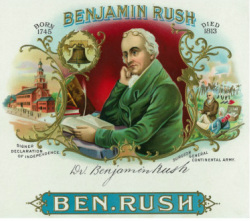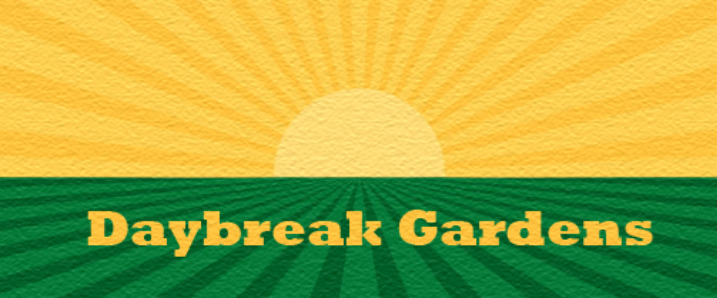Horticultural Therapy

Have you ever thought that gardening could change the way you feel? Ask any gardener why they enjoy gardening and time and time again they will say it makes them feel good. When someone is depressed or has been ill we send them what, to make them feel better? It is most usually flowers or a potted plant.
This type of therapy has probably been going on longer than any known kind of therapy. The first record of therapy by use of nature occurred in ancient Egypt. Court physicians would prescribe walks in the royal gardens to mentally disturbed royalty. Even during the time of Jesus Christ, many people thought gardens had healing powers. Jesus found solace in the Garden of Gethsemane prior to his death.
Spanish hospitals in 1806 used horticultural activities for mentally impaired patients. In 1798, Dr. Benjamin Rush, a signer of the Declaration of Independence and considered to be the “Father of American Psychiatry”, documented that gardening improved the conditions of mentally ill patients. He stated that “digging in a garden” was one of the activities that distinguished those male patients who recovered from their mania from those that did not. Agricultural and gardening activities were included in both public and private psychiatric hospitals, and Friends Asylum for the Insane was the first known example, opening in 1813 in Philadelphia. In 1879, Friends built the first greenhouse to enhance its long tradition of horticultural therapy.
Gardening as a means of physical and psychological rehabilitation was used in Veterans Administration hospitals for returning world war veterans in the U.S.A. They worked in gardens to improve functioning of injured limbs, increase mental function, and also learn skills.
By 1955, the use of plants for therapy and rehabilitation was becoming so important that Michigan State University began the first undergraduate degree in horticultural therapy. The first graduate curriculum was established at Kansas State University in 1971.
What is Horticultural Therapy
Horticultural Therapy has been defined as “the use of plants and gardens for human healing and rehabilitation”. An increasing large body of research attests to the unique values of horticulture as a therapy for people with physical, mental and emotional, and social disabilities. As plants are non-discriminating and non-threatening, anyone can be successful. It doesn’t matter how old or intelligent a person is; their race, religion, and IQ don’t matter either. Plants will respond to anyone providing care. Studies show that success with plants can lead to successes in other aspects of our lives. This is important for individuals whose disabilities or limitations might hinder their accomplishments in other pursuits.
Benefits of Horticultural Therapy
The benefits of involvement in horticultural activities and exposure to nature can be seen in cognitive, psychological, social, and physical realms and research continues to reveal these connections across many groups of people. The following list includes some of the benefits that have been cited in the literature.
Cognitive Benefits
* Enhance cognitive functioning
* Improve concentration
* Stimulate memory
* Improve goal achievement
* Improve attentional capacity
Social Benefits
* Improve social integration
* Increase social interaction
* Gain independence
* Provide for healthier patterns of social functioning
* Improved group cohesiveness
Physical Benefits
* Improve immune response
* Decrease stress
* Decrease heart rate
* Promote physical health
* Improve fine and gross motor skills and eye-hand coordination
Psychological Benefits
* Improve quality of life
* Increase self-esteem
* Improve sense of well-being
* Reduce stress
* Decrease anxiety
* Alleviate depression
* Increase sense of control
* Improve sense of personal worth
* Increase feelings of calm and relaxation
* Increase sense of stability
* Improve personal satisfaction
* Increase sense of pride and accomplishment
Who Can Benefit
People of all ages and special needs can benefit from involvement in horticultural therapy. Programs operate throughout the United States as well as in other countries and can be found in the following facility and program types:
Vocational, pre-vocational, occupational, and rehabilitation programs
Psychiatric hospitals and mental health programs
Substance abuse programs
Hospitals, clinics, and skilled nursing facilities
Hospice and palliative care programs
Cancer centers
Correctional facilities
Shelters for the homeless and victims of abuse
Public and private schools
Assisted living and senior centers
Adult day care
Community and botanic gardens
This type of therapy has probably been going on longer than any known kind of therapy. The first record of therapy by use of nature occurred in ancient Egypt. Court physicians would prescribe walks in the royal gardens to mentally disturbed royalty. Even during the time of Jesus Christ, many people thought gardens had healing powers. Jesus found solace in the Garden of Gethsemane prior to his death.
Spanish hospitals in 1806 used horticultural activities for mentally impaired patients. In 1798, Dr. Benjamin Rush, a signer of the Declaration of Independence and considered to be the “Father of American Psychiatry”, documented that gardening improved the conditions of mentally ill patients. He stated that “digging in a garden” was one of the activities that distinguished those male patients who recovered from their mania from those that did not. Agricultural and gardening activities were included in both public and private psychiatric hospitals, and Friends Asylum for the Insane was the first known example, opening in 1813 in Philadelphia. In 1879, Friends built the first greenhouse to enhance its long tradition of horticultural therapy.
Gardening as a means of physical and psychological rehabilitation was used in Veterans Administration hospitals for returning world war veterans in the U.S.A. They worked in gardens to improve functioning of injured limbs, increase mental function, and also learn skills.
By 1955, the use of plants for therapy and rehabilitation was becoming so important that Michigan State University began the first undergraduate degree in horticultural therapy. The first graduate curriculum was established at Kansas State University in 1971.
What is Horticultural Therapy
Horticultural Therapy has been defined as “the use of plants and gardens for human healing and rehabilitation”. An increasing large body of research attests to the unique values of horticulture as a therapy for people with physical, mental and emotional, and social disabilities. As plants are non-discriminating and non-threatening, anyone can be successful. It doesn’t matter how old or intelligent a person is; their race, religion, and IQ don’t matter either. Plants will respond to anyone providing care. Studies show that success with plants can lead to successes in other aspects of our lives. This is important for individuals whose disabilities or limitations might hinder their accomplishments in other pursuits.
Benefits of Horticultural Therapy
The benefits of involvement in horticultural activities and exposure to nature can be seen in cognitive, psychological, social, and physical realms and research continues to reveal these connections across many groups of people. The following list includes some of the benefits that have been cited in the literature.
Cognitive Benefits
* Enhance cognitive functioning
* Improve concentration
* Stimulate memory
* Improve goal achievement
* Improve attentional capacity
Social Benefits
* Improve social integration
* Increase social interaction
* Gain independence
* Provide for healthier patterns of social functioning
* Improved group cohesiveness
Physical Benefits
* Improve immune response
* Decrease stress
* Decrease heart rate
* Promote physical health
* Improve fine and gross motor skills and eye-hand coordination
Psychological Benefits
* Improve quality of life
* Increase self-esteem
* Improve sense of well-being
* Reduce stress
* Decrease anxiety
* Alleviate depression
* Increase sense of control
* Improve sense of personal worth
* Increase feelings of calm and relaxation
* Increase sense of stability
* Improve personal satisfaction
* Increase sense of pride and accomplishment
Who Can Benefit
People of all ages and special needs can benefit from involvement in horticultural therapy. Programs operate throughout the United States as well as in other countries and can be found in the following facility and program types:
Vocational, pre-vocational, occupational, and rehabilitation programs
Psychiatric hospitals and mental health programs
Substance abuse programs
Hospitals, clinics, and skilled nursing facilities
Hospice and palliative care programs
Cancer centers
Correctional facilities
Shelters for the homeless and victims of abuse
Public and private schools
Assisted living and senior centers
Adult day care
Community and botanic gardens
